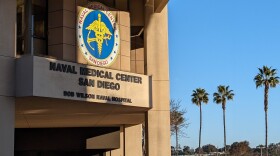Before a massive earthquake struck Haiti, fortunes had begun looking brighter for the Western Hemisphere's poorest nation. Just last October, former President Bill Clinton was hosting a trade mission to Haiti, challenging international donors and investors to think big about the country's potential for manufacturing and tourism.
"There is enormous potential here," Clinton told about 200 interested investors at a session in which he invited them to spend freely on job-creating industries.
But a day after the devastating 7.0 magnitude earthquake, the former president found himself pleading for money for the most basic tools of survival. "We need cash to buy water, food and first-aid supplies," he told NPR's Melissa Block.
Clinton spoke from his New York office at the United Nations, where he and his colleagues were trying to assess the casualties among U.N. personnel in the collapse of the hotel that served as headquarters for the organization's mission to Port-au-Prince.
But even in the wake of a tragedy, the former president said that after the first few weeks of humanitarian rescue and relief work, he plans to go back to implementing a plan that he and others have been working on for more than a year.
A New Focus On Haiti
Last July, when Clinton visited the Caribbean nation after being appointed special envoy to Haiti by U.N. Secretary-General Ban Ki-moon, hopes were high that Haiti was on its way to recovery. Clinton was eager to draw international aid and investment in new, more focused ways.
Haiti's situation was, if anything, more dire than ever: Political instability, environmental degradation and a relentless pounding from natural disasters had left the country unable to survive without international aid.
The United Nations, which maintains a 9,000-member peacekeeping force in Haiti, estimates that 4 out of 5 Haitians live below the poverty line, on less than $2 a day. More than half the population is considered to live in "abject poverty," or on less than a dollar a day.
In 2008, soaring world food prices stripped ordinary Haitians of the ability to buy even basic staples, such as rice and beans. The crisis triggered riots in April of that year and toppled the government of Prime Minister Jacques-Edouard Alexis.
The World Bank and other donors provided emergency funding to get through that crisis, but just a few months later, Haiti was hit by devastating storms. In August and September of 2008, three hurricanes and a tropical storm caused catastrophic flooding and mudslides, leaving at least 800 people dead and thousands more homeless.
But the sheer size of the calamities helped refocus world attention on the island.
International Help
Ban Ki-moon made Haiti a special priority, and in March of last year, he traveled with Clinton to Port-au-Prince, the Haitian capital, to kick off an international recovery effort. Ban told reporters, "There is a growing optimism that Haiti has the assets it needs to break the impasse."
Ban was referring, in part, to U.S. legislation called the HOPE II Act, which allows textile goods made in Haiti to enter the U.S. duty-free. That's a big advantage for garment manufacturers, and it was hoped that it would attract foreign investment for factories in Haiti.
Ban's and Clinton's visit to Haiti helped raise awareness for an international donors' conference in Washington, D.C., in April, at which nations and groups pledged about $324 million for rebuilding Haiti over a two-year period.
One of the stars of that conference was Haiti's new prime minister, Michele Pierre-Louis, a former top aide to billionaire investor George Soros. Pierre-Louis had a reputation as a calm and competent technocrat, raising the hope that her appointment would inspire the confidence of potential foreign investors in Haiti.
The Inter-American Development Bank promised in June to provide Haiti with $120 million in grants to develop its infrastructure and to improve protection against natural disasters.
In July, the International Monetary Fund and other lenders agreed to forgive about $1.2 billion worth of Haiti's debt. The debt relief saved Haiti's government about $50 million a year in interest payments alone, and freed up the money for development.
Reasons For Hope
Haiti seemed on track for a new beginning. The worldwide recession hurt the country's efforts to build its textile industry, but it also reduced the food and fuel prices that had caused so much pain to ordinary Haitians.
Business leaders such as Georges Sassine, president of the Haitian Association of Industries, saw the coming years as a period for rebuilding the country's infrastructure, especially roads and port facilities, in preparation for steady growth in exports.
During Clinton's trade mission in October, the situation seemed so positive that he told attendees, "Your political risk in Haiti is lower than it has ever been in my lifetime."
The former president's hopes for political stability took a blow just a few weeks later, when Haiti's Senate voted to oust Pierre-Louis, saying that she had failed to promote the economic recovery. President Rene Preval appointed the country's planning minister, Jean-Max Bellerive, as the new prime minister.
As the transition took place, Haiti's ambassador to the U.N., Leslie Voltaire, noted that one reason for the slow pace of development under Pierre-Louis' government was that only about 15 percent of the money promised at the April donors' conference had been delivered.
Now, with Haiti in the throes of a new disaster, pledges of international aid are flowing once again. It remains to be seen whether those pledges will be met, and whether the world's attention to Haiti's development will survive the current fixation on the country's survival.
In his interview on NPR's All Things Considered, Clinton called the earthquake "a terrible economic setback" for the island nation but said he believes it could intensify the determination of Haitians to rebuild their country.
"Every tragedy in life shapes the future," he said, "depending on how you respond to it."
Copyright 2022 NPR. To see more, visit https://www.npr.org. 9(MDAzMjM2NDYzMDEyMzc1Njk5NjAxNzY3OQ001))






